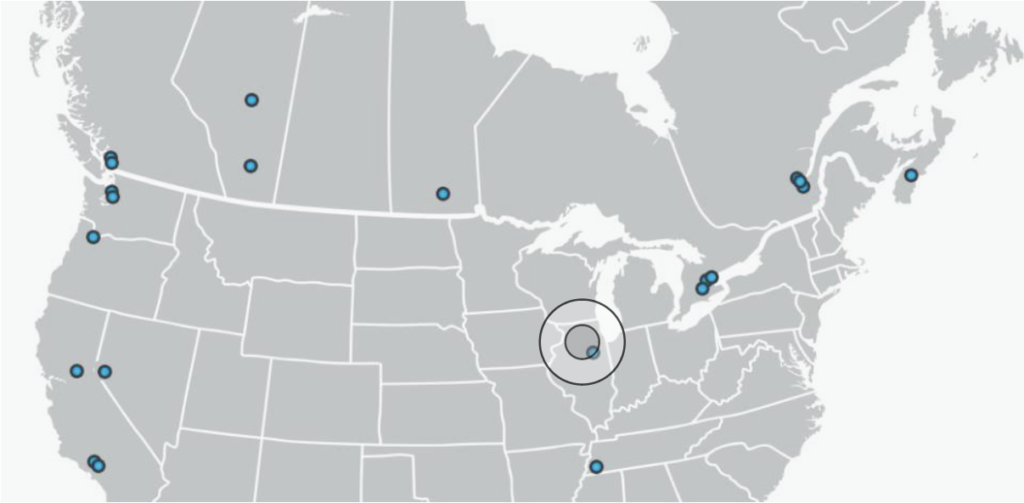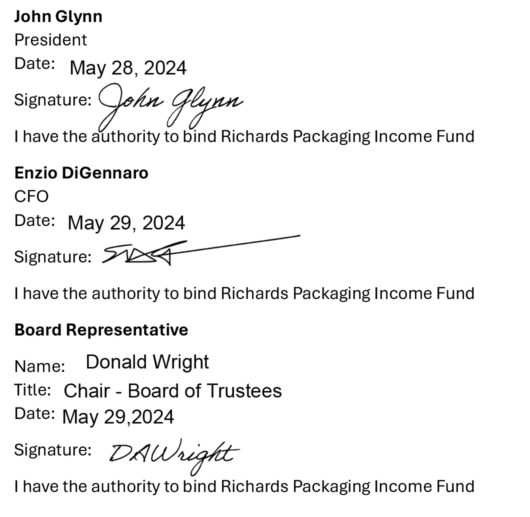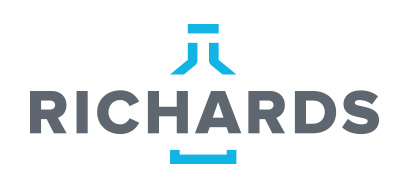(document disponible en anglais seulement)
Securité et conformité
Richards Packaging Income Fund Modern Slavery Report
Introduction
Richards Packaging is a major North American distributor of glass and plastic containers. Their operations span across the wholesale trade, transportation & warehousing, and manufacturing industries. They provide a wide range of containers for food, pharmaceuticals, health & beauty, and industrial applications as well as products for aesthetic medical use.
This report has been prepared by Richards Packaging Income Fund (“Richards”) for fiscal reporting year January 2023 – December 2023. This is a joint report which covers all entities within their control: Richards Packaging Inc/Emballages Richards, Healthmark Services Inc, Healthmark Medical Inc., Clarion Medical Technologies Inc., Luvo Medical Technologies Inc., Accutech Medical Technologies Inc., Vision Plastics Inc., Richards Packaging, Inc, and The EJ Mckernan Co. This is the first version of the report. Richards is not subject to any other supply chain legislation in any other jurisdiction.
Richards is listed on the Toronto Stock Exchange and is headquartered in Mississauga, Ontario. They do business across North America and with suppliers worldwide, with assets across North America. Richards totaled $133.7 million in assets, generated $425.9 million in revenue, and employed approximately 600 employees in 2023.
A. Structure, Activities and Supply Chains
Structure
Richards Packaging is a Trust which controls the following entities: Richards Packaging Income Fund, HealthMark Inc, Clarion Medical Technologies, Dispill, Vision Plastics Inc., Mckernan Packaging. The executive team is based in Mississauga, Ontario and oversees all entities. Each business unit (Food/beverage/industrial packaging, healthcare) has their own specialized leadership team.
Richards Packaging Income Fund is composed of two main industries: Packaging and Healthcare.
The Packaging side of the business encompasses Richards Packaging USA & Canada and Mckernan Packaging brand names. These brands purchase glass containers, plastic containers and related closures both domestically and overseas. They also have two plastic container manufacturing facilities (one in Canada and one in the USA). They warehouse these goods in North America and then distribute to local customers across a variety of industries including food & beverage, cosmetic, and others.
The Healthcare side of the business encompasses Clarion, Luvo, Accutech, HealthMark, Dispill and Richards Pharma brand names. These businesses buy a variety of healthcare capital and consumable products. These range from aesthetic capital & consumables (lasers, injectables, skincare) used by clinics to pharmacy capital & consumables (pill dispensers/counters/organizers, vials & caps) used by hospital & retail pharmacies. These are purchased both domestically and overseas and sold to customers in Canada.
Richards has offices & employees in the following locations:

Richards and its subsidiaries operate 17 sales offices which include warehousing space in the following locations:
- Mississauga, Ontario
- Cambridge, Ontario
- Lachine, Quebec (2 locations)
- Granby, Quebec
- Dartmouth, Nova Scotia
- Winnipeg, Manitoba
- Edmonton, Alberta
- Calgary, Alberta
- Langley, British Columbia
- Auburn, Washington
- Portland, Oregon
- Roseville, California
- Reno, Nevada
- Sante Fe Springs, California
- Woodland Hills, California
- Memphis, Tennessee
Richards operates 2 plastic manufacturing plants in the following locations:
- Langley, British Columbia
- Tacoma, Washington
Richards operates one warehouse campus in the following location:
- Streator, Illinois
Most employees at these locations are Richards Packaging employees (or the relevant subsidiary). A small percentage of contract labor is used when required to support volume.
Activities and Supply Chains
Across all entities, Richards is chiefly a distributor of goods. The majority of the inventory in the Richards supply chain flows as follows: Richards buys inventory from manufacturers around the world, warehouses the goods in various locations across North America and ships goods to customers on their request.
Richards buys most inventory from Asia, North America and Egypt, with some inventory purchases from Europe and South America. These goods are then imported to either Canada or the United States (depending on where they will be sold) and sold to customers by the respective sales office. In some instances, Richards will purchase inventory from their suppliers and ship the goods directly to the customer’s address.
Richards also manufactures their own plastic containers at their plants in Tacoma, Washington and Langley, British Columbia. In this case the raw material is purchased from North America or Asia and then processed into a finished good.
For medical distribution, there are often special requirements for certain products (temperature control, lot traceability etc) that are strictly adhered to. Shipments are shipped to customers both by third parties, Richards employee drivers or customer organized shipment.
B. Policies and due diligence processes
Richards and its subsidiaries have completed mapping activities to map out their supply chain and conducted both an internal and external assessment of forced labour and/or child labour in their activities and supply chains. These mapping activities include direct (Tier 1) suppliers, freight/transportation service providers and third party warehousing partners, in addition to all internal Richards activities.
In 2023, Richards has expanded their HR team to gather information on worker recruitment, update Health & Safety policies and maintain internal controls to ensure that all workers are recruited voluntarily. Externally, Richards has begun the development of due diligence policies and processes for identifying, addressing, and prohibiting the use of forced labour and/or child labour in activities and supply chains. Richards and its subsidiaries visit all major suppliers once per year to monitor their activities and their factory operations (as long as safety of employees is not at risk due to geo-political issues). In the last visit in 2024, the Richards team engaged in discussion on child labor / forced labor and obtained statements from major suppliers on their understanding of and compliance to Canada’s Modern Slavery Bill.
Richards has implemented the following elements of due diligence process:
- Risk Assessment and Mapping: Mapped out the supply chain, including subcontractors and suppliers, to understand the flow of goods and services.
- Supplier Monitoring and Assessments: Monitor major supplier factories in person at least once/year and assess suppliers’ practices, policies, and compliance with labor standards. Evaluate their due diligence processes and commitment to human rights.
- Labor Standards and Codes of Conduct: Obtained written acknowledgement from major suppliers of their adherence to North American Labor standards.
- Remediation Mechanisms: If needed, ready to implement corrective actions and remediation plans when adverse impacts are identified.
- Transparency and Reporting: Regularly report on due diligence efforts, progress, and outcomes. Make information accessible to stakeholders, including investors, customers, and civil society.
Richards recognizes that due diligence is an ongoing process that we will continuously monitor, adapt, and improve.
C. Forced labour and child labour risks
Richards has started the process of identifying risks, but there are still gaps in their assessment. Richards has identified risks based on the location of its suppliers and that they are in the manufacturing industry. The assessment has focused on Tier 1 (Direct) suppliers and included instances where these suppliers outsource all or a portion of their labour.
During supply chain mapping and risk assessment activities, Richards identified several country-specific risk factors for several direct suppliers. These factors included lax human rights practices and geopolitical instability. As a result, direct supplier factory due diligence in these areas have been prioritized. Richards has always engaged with these suppliers directly to foster transparency and cooperation and will continue to do so by ensuring the following:
- A minimum of once/year visits to monitor factories working conditions and health & safety measures.
- Engage in relationship building conversations with supplier management concerning forced/child labor standards in Canada.
Richards will continue to report on due diligence efforts and prioritize countries with these specific risk factors.
D. Remediation measures
Richards and its subsidiaries have not identified any instances of forced or child labour in their activities and supply chains, so no remediation activities have taken place.
E. Remediation of loss of income
Richards and its subsidiaries have not identified any instances of forced or child labour in their activities and supply chains, so no remediation of loss of income has taken place.
F. Training
Richards is in the process of developing a training program to employees on forced labour and/or child labour. This training will be mandatory for employees making contracting or purchasing decisions and will be developed internally.
The training will focus on purchasing professionals who purchase in geographical areas the entity has identified as higher risk for forced labour or child labour. The objective of the program is to equip purchasing professionals with the knowledge and skills necessary to detect and address the risks of forced and child labor within their supply chains.
The training program will be structured to provide an understanding of the legal framework, ethical considerations, and practical tools needed to identify and prevent forced and child labor in supply chains. Participants will learn how to conduct due diligence, recognize red flags, and implement effective strategies to ensure compliance with international standards and regulations.
The format of the training will be online modules with informational sections as well as quizzes to ensure proper comprehension. The training is currently being developed/piloted with a small number of employees and is being expanded to cover all purchasing professionals.
G. Assessing effectiveness
Richards does not currently have policies and procedures in place to assess its effectiveness in ensuring that forced labour and child labour are not being used in its activities and supply chains. As Richards continues to create and improve their due diligence processes and training, they will add actions to assess the effectiveness of these policies in future reports.
Attestation
In accordance with the requirements of the Act, and in particular section 11 thereof, I attest that I have reviewed the information contained in the report for the entity or entities listed above. Based on my knowledge, and having exercised reasonable diligence, I attest that the information in the report is true, accurate and complete in all material respects for the purposes of the Act, for the reporting year listed above.


